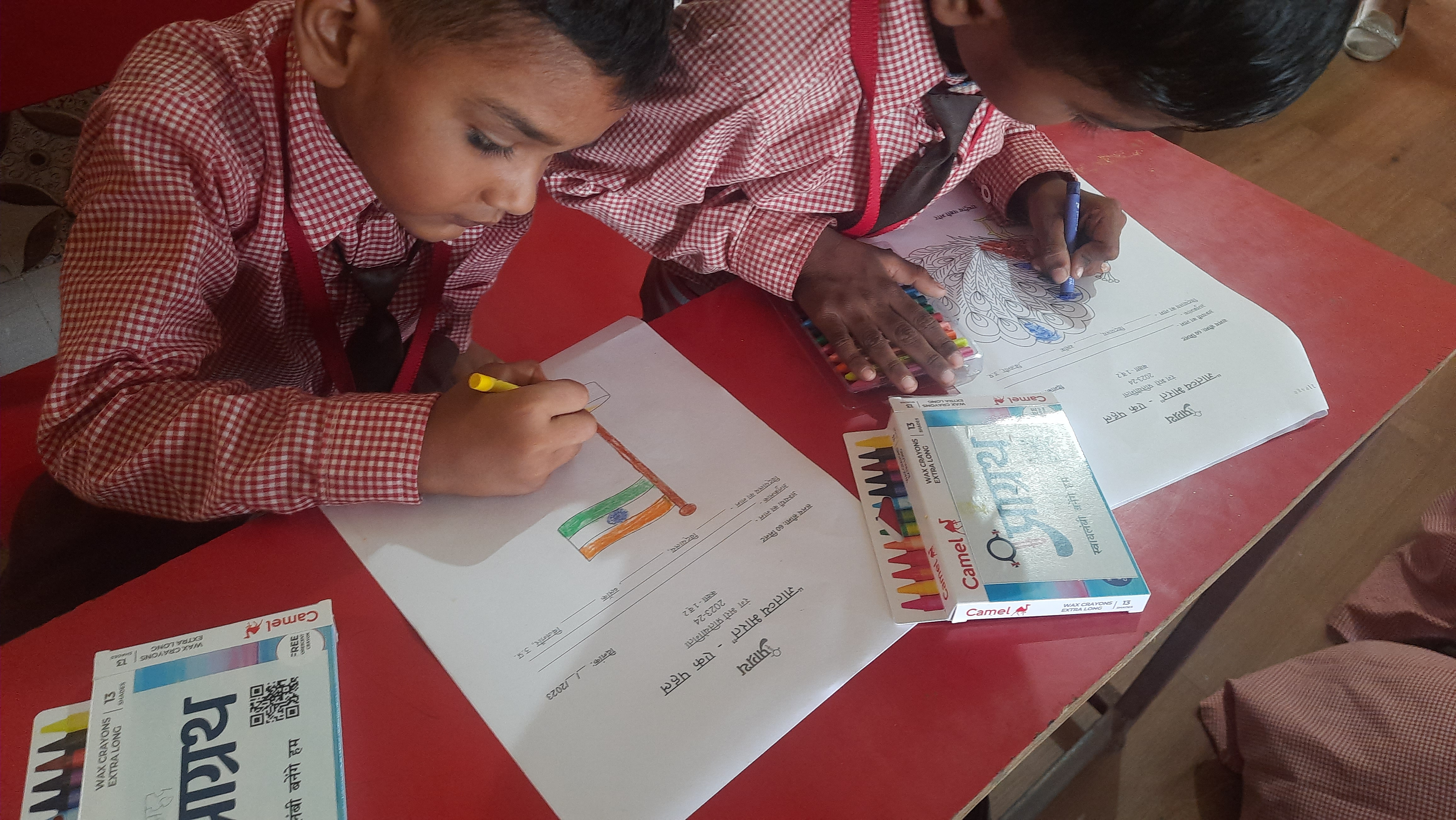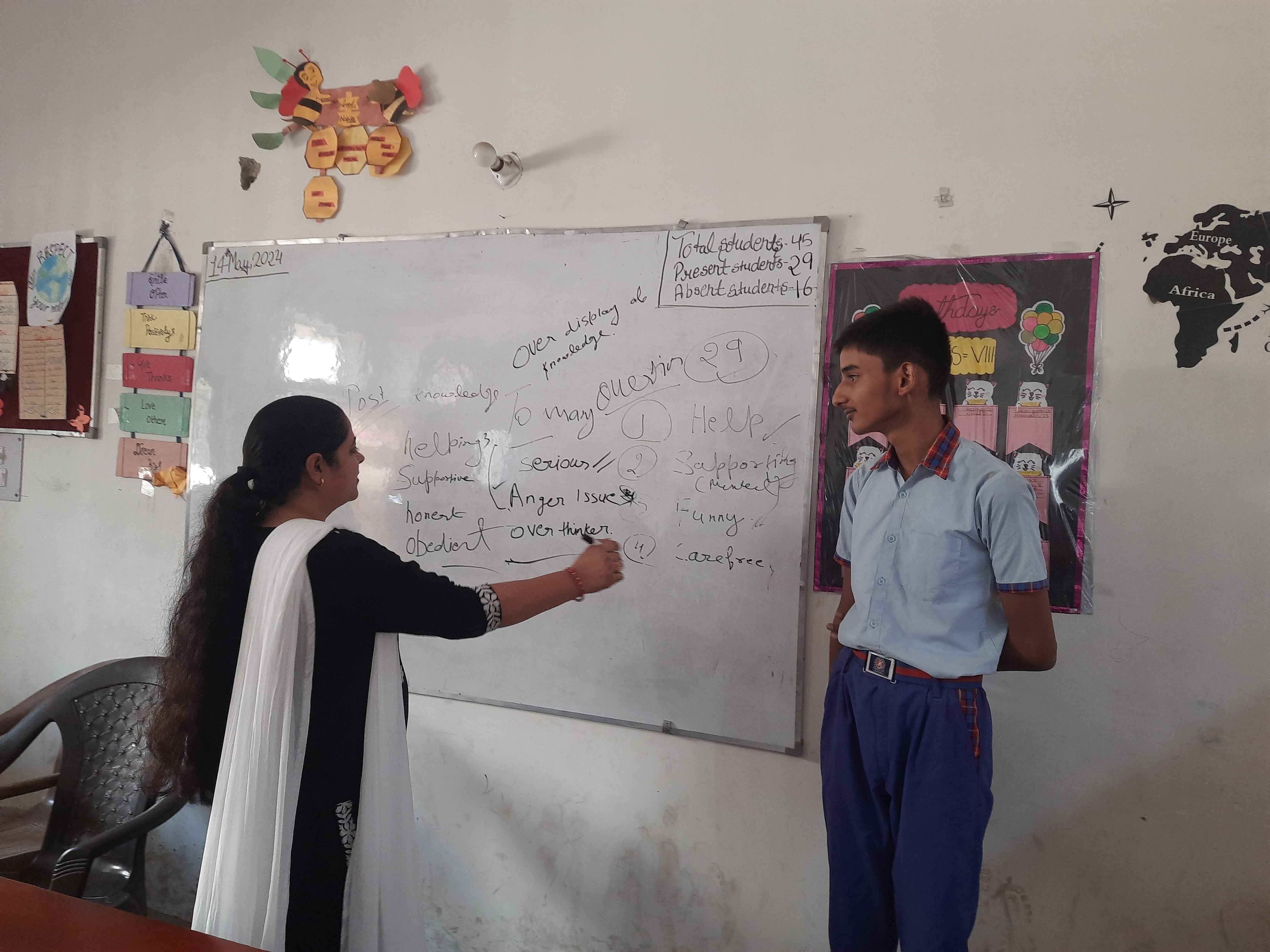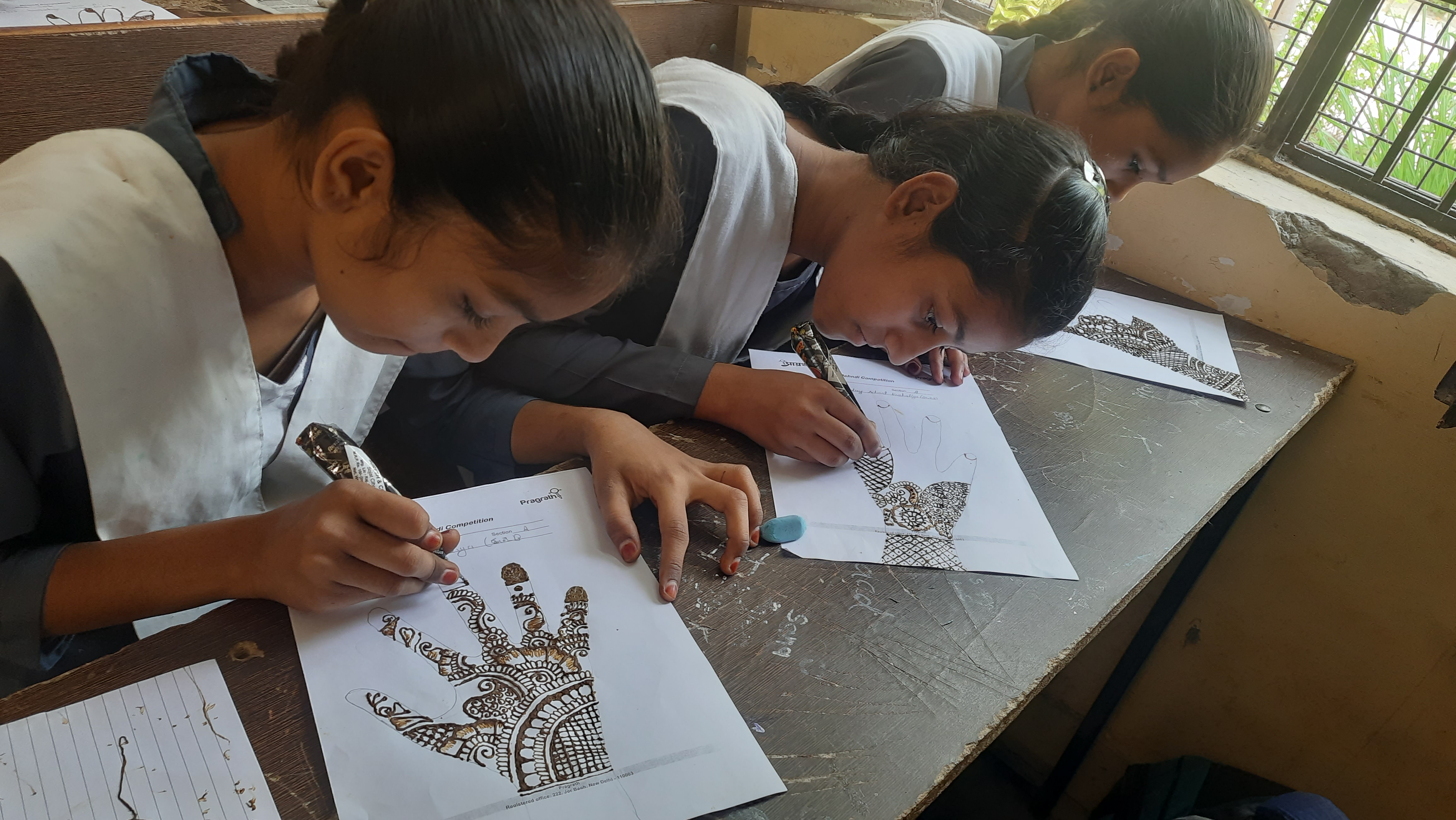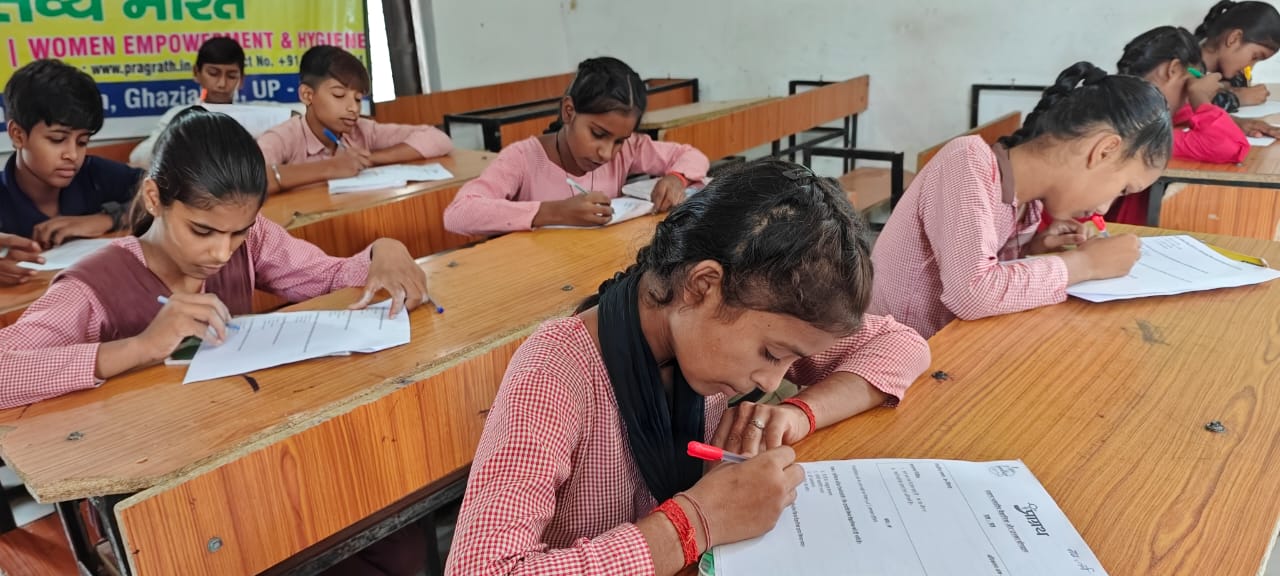Celebrating days of national importance is a way for a country and its citizens to commemorate significant historical events, achievements, or movements that shaped its identity. These days often reflect themes of independence, unity, sacrifice, culture, or progress. India observes several days of national importance to commemorate its history, achievements, and cultural heritage. Each of these days is celebrated with a unique blend of patriotism, traditions, and public participation.
Here’s how the key days of national importance are celebrated in India:
1. Republic Day (January 26)
Significance: Marks the adoption of the Indian Constitution in 1950.
Celebrations:
A grand parade is held in New Delhi, showcasing India’s military strength, cultural diversity, and technological advancements.
The President of India awards Padma Awards and Gallantry Awards to distinguished individuals.
Schools and institutions organize cultural programs, flag hoisting, and essay writing or quiz competitions.
National Anthem is sung with great pride across the country.
2. Independence Day (August 15)
Significance: Celebrates India’s independence from British rule in 1947.
Celebrations:
The Prime Minister hoists the national flag at the Red Fort in Delhi and delivers a speech reflecting on the nation's progress and future goals.
Flag-hoisting ceremonies are organized across the country in schools, offices, and public places.
Patriotic songs, plays, and cultural performances evoke a sense of national pride.
Citizens decorate their homes and vehicles with the tricolor and participate in community events.
Kite flying is a popular tradition, symbolizing freedom.
3. Gandhi Jayanti (October 2)
Significance: Celebrates the birth anniversary of Mahatma Gandhi, the Father of the Nation.
Celebrations:
Tributes are paid at Raj Ghat, Gandhi’s memorial in Delhi.
Schools and colleges host events like essay competitions, skits, and speeches on Gandhi’s philosophy of non-violence and truth.
Cleanliness drives are organized as part of the Swachh Bharat Abhiyan, inspired by Gandhi's vision of hygiene and sanitation.
The day is observed as the International Day of Non-Violence globally.
4. Children’s Day (November 14)
Significance: Marks the birth anniversary of Jawaharlal Nehru, India’s first Prime Minister, who was fond of children.
Celebrations:
Schools organize fun activities like cultural programs, sports, and picnics for children.
Teachers often perform songs, dances, or skits to entertain students.
Awareness programs are conducted to highlight children’s rights and education.
5. Teacher’s Day (September 5)
Significance: Celebrates the birth
anniversary of Dr. Sarvepalli Radhakrishnan, a philosopher and India’s second President.
Celebrations:
Students organize programs to honor their teachers, including speeches, performances, and gifts.
Some students take on the role of teachers for the day, teaching junior classes.
Special events are hosted to recognize exceptional contributions by educators.
6. National Youth Day (January 12)
Significance: Marks the birth anniversary of Swami Vivekananda, a great philosopher and youth icon.
Celebrations:
Educational institutions organize debates, seminars, and cultural programs inspired by Vivekananda’s teachings.
Youth parades and activities promote themes like national integration and leadershi
7. Martyrs’ Day (January 30 and March 23)
Significance: Honors the memory of freedom fighters and those who sacrificed their lives for the nation.
Celebrations:
A two-minute silence is observed nationwide.
Wreaths are laid at memorials, including Raj Ghat.
Educational institutions conduct plays and discussions on the lives of national heroes like Mahatma Gandhi and Bhagat Singh.
8. Armed Forces Flag Day (December 7)
Significance: Honors the sacrifices and service of the Indian armed forces.
Celebrations:
Citizens contribute to the Armed Forces Flag Day Fund to support soldiers and their families.
Events are held to recognize the valor of the military.
9. National Science Day (February 28)
Significance: Commemorates C.V. Raman’s discovery of the Raman Effect.
Celebrations:
Schools and universities host science exhibitions, competitions, and public lectures.
Scientists and researchers are honored for their contributions.
10. International Yoga Day (June 21)
Significance: Promotes India’s ancient tradition of yoga for health and wellness.
Celebrations:
Mass yoga sessions are organized worldwide, including a central event led by the Prime Minister in India.
Schools and communities conduct workshops and demonstrations.
These celebrations are not just events but opportunities to reflect on India's rich history, achievements, and future aspirations. To add more knowledge and awareness, "Pragrath" organise competitions about these days under its "Gyatavya Bharat" initiative.





.jpg)

Comment(s) (169)
I’m wearing my favorite lingerie, want to see it on the floor? - https://Go23c12.short.gy/fghQba?boync
, text and illustrations to which
New Member Introduction – Happy to Join the Community
jest to znane kasyno internetowe z bogata oferta gier hazardowych . Gracze moga wybierac sposrod wielu roznych gier, w tym slotow, gier stolowych i gier na zywo . Vulkan Spiele Casino umozliwia graczom dostep do szerokiej gamy gier za pomoca urzadzen mobilnych. Gra w Vulkan Spiele Casino umozliwia graczom wygrana prawdziwych nagrod i udzial w turniejach . Gracze moga grac w gry na urzadzeniach mobilnych, aby miec dostep do gier o kazdej porze. Vulkan Spiele Casino umozliwia graczom korzystanie z funkcji spolecznosciowych, aby polaczyc sie z innymi graczami. vulkanspiele no deposit [url=vulkanpoland.com/no-deposit-bonus]https://vulkanpoland.com/no-deposit-bonus/[/url]
Good day! Hope this message finds you well. Dear Webmaster, I provide non-repayable grants to website administrators. No obligations involved. If this interests you, please reply with your availability. Please contact me on WhatsApp +66825547845
[url=https://rhsolutions1.in]Купить пластиковые окна на заказ в Москве[/url] — это отличный способ улучшить энергоэффективность вашего дома и повысить его комфорт. Вам предложат разнообразные варианты по стоимости и срокам выполнения заказа.
Come over and let’s create some heat - https://nMm5id.short.gy/jEMfCL?lit
cutty loli value girls https://is.gd/BlCAHo
I'm ready to indulge in forbidden pleasures. - https://girlsfun.short.gy/Ju0Xdq?boync
or their samples written
Since the era of Charlemagne
The truth: Every 10 minutes pays a big win. Test it! Start Spinning Here => u.to/sB9kIA
"मैं अपनी सभी छिपी इच्छाओं को किसी विशेष के साथ साझा करना चाहता हूं । " - girlsfun.short.gy/Ju0Xdq?lit
This holiday season, imagine replacing multiple expensive business tools with one powerful, all-in-one suite — without monthly fees, complicated setups, or tech overwhelm. That’s exactly what Christmas Suite delivers. It’s a premium business & marketing toolkit designed for entrepreneurs, creators, agencies, and online sellers who want to build faster, automate smarter, and keep more profit — all from one place. >>>>>Remember: For a limited time, you can access Christmas Suite for just $18 No subscriptions, no recurring fees – just one payment for lifetime access to these world-class tools!<<<<< Get it now before the offer ends: https://cutt.ly/ChristmasSuite Inside Christmas Suite, you get access to: 1. Premium App 1: Hybrid AI - World’s First & ONLY AI Tech That Creates Scroll Stopping Viral Human + Animal Hybrid Videos Clients Can’t Stop Watching In 3 Clicks [$99/month] Now Only $14 2. Premium App 2: Azon Auto Sites - World's First App Powered By Amazon's Latest Al Tech "Rufus" Transforms Your Single Keyword Into Stunning DFY Amazon Affiliate Sites Loaded With 350 Million "Ready-To-Sell" Highly-Profitable Products In Any Language & Niche [$97/month] Now Only $14 3. Premium App 3: Imagio AI - Combines 15 Premium AI Design Tools Into 1 Powerhouse Suite — In Minutes No more subscriptions. No more patchwork tools. Just lightning-fast image generation, background removal, enhancement, and pro-level visuals in one click. [$97/month] Now Only $14 4. Premium App 4: AI Funnels - Brand New 2025 AI App Transforms Your Ideas, Keywords and Voice Command Prompts into Stunning Websites, Funnels, Blogs in Any Niche & Language In Less than 60 Seconds [$99/month] Now Only $14 5. Premium App 5: Deal Sites - World's First Secret Click & Publish System Automatically Creates 100% DFY, Self Updating Amazon™ & eBay™ Affiliate Deal Sites That Instantly Rank On Google In Just 3 Steps [$99/month] Now Only $14 6. Premium App 6: WP AI Engine - Breakthrough: The All-in-One WordPress AI App Lets You Sends Unlimited Emails To Unlimited Subscribers, Create 100,000 SEO Optimized Done For You Blogs, Build 50000+ Ultra Fast, Profitable Funnels, Sales Pages, Checkout Pages At An Unbeatable, Low One Time Price [$99/month] Now Only $14 7. Premium App 7: Easy eBook Creator - World’s First AI App Auto Creates Up To 50,000 AMAZING, Fully Functional eBooks For Any Offer In Any Niche With Zero Writing Skills At An Unbeatable LOW ONE TIME Price [$99/month] Now Only $14 8. Premium App 8: WP AI Hub - World’s First AI App Transforms Your Boring WordPress Into Amazing AI WordPress Powered With MUST HAVE 200+ AI Apps From A Single Dashboard At An Unbeatable LOW ONE TIME Price [$99/month] Now Only $14 Instead of juggling subscriptions, logins, and learning curves, Christmas Suite gives you one clean dashboard where everything works together seamlessly. Why smart buyers are jumping on this now: Most online tools charge monthly — and the costs never stop. Christmas Suite flips the model with a one-time holiday deal that gives you long-term value, freedom, and flexibility. Whether you want to: 1. Launch offers quickly 2. Automate your marketing 3. Reduce tool expenses 4. Build professional assets without tech skills 5. Prepare your business for the new year This suite helps you do it faster, cheaper, and with less stress. >>>>>The Deal's actual price is $18, but when you use our link below, you will get an extra $4 off. That's cool, right? Use this Promo Link for an Extra $4 Off<<<<< >>>>>Get it now before the offer ends: https://cutt.ly/ChristmasSuite <<<<< (30 Days Money Back Guarantee) Best Regards, Christmas Suite
New Member Introduction – Happy to Join the Community
Have you ever been frustrated with Google Drive, Dropbox, and OneDrive? I know I have! MediaGuard is here to save the day! Well, say hello to MediaGuard! Say goodbye to monthly fees, and lots of them that add up fast. Get MediaGuard for a small one-time fee today and never pay again. >>>>>Get it now before the offer ends: https://cutt.ly/MediaGuardAI <<<<< MediaGuard is a brand new "SSD Cloud" technology that lets you store and deliver all your videos, audios, images & media files at lightning-fast speed. Never again will you have to deal with buffering or slow downloads. >Host your videos, audios, and images >SSD Ultra-Fast Loading Speeds and ZERO downtime >Store unlimited files without paying monthly >Backup all your important files >Complete data protection with FREE End-to-End SSL encryption And you get to do that WITHOUT paying monthly for it....but that's only for the next Few DAYS, so you'll want to be quick! Get it now before the offer ends: https://cutt.ly/MediaGuardAI >>>>>Remember: If you miss the Deal (Unlimited Cloud Storage for $17 - One Time Payment), You have to Pay $97/month.<<<<< MediaGuard is the easiest way to store, backup, and serve all your personal and business files - photos, videos, documents & more - all in one place. And we will give you a discount of $3 on your purchase if you buy now. >>>>> Use Coupon Code : MEDIAGUARDAI <<<<< The Deal's actual price is $17, but when you use our link below, you will get an extra $3 off. That's cool, right? Use this Promo Code for an Extra $3 Off >>>>>Get it now before the offer ends: https://cutt.ly/MediaGuardAI <<<<< (30 Days Money Back Guarantee) Best Regards, MediaGuardAI
Hi! Hope your day is going smoothly. Hello, I'm contacting website administrators about development funding. This is a non-repayable grant. Would you like to learn more about this opportunity? Please contact me on WhatsApp +31687318106
"मोहक निम्फोमेनियाक भाप से भरा भोग चाहता है । "यहाँ -- rb.gy/3fy54w?lit
В поисках надежного поставщика редкоземельных металлов и сплавов? Обратите внимание на компанию Редметсплав.рф. Мы предлагаем обширный каталог продукции, обеспечивая превосходное качество каждого изделия. Редметсплав.рф гарантирует все стадии сделки, предоставляя полный пакет необходимых документов для легализации товаров. Неважно, какие объемы вам необходимы – от мелких партий до крупнооптовых заказов, мы готовы выполнить любой запрос с непревзойденным обслуживанием. Наша команда службы поддержки всегда на связи, чтобы помочь вам в определении подходящих продуктов и ответить на любые вопросы, связанные с применением и характеристиками металлов. Выбирая нас, вы выбираете уверенность в каждой детали сотрудничества. Заходите на наш сайт Редметсплав.рф и убедитесь, что качество и уровень нашего сервиса - идеальный вариант для вас. Наши товары: <a href=https://редметсплав.рф/catalog/nikelevye-kapilliarnye-trubki/nikelevaia-kapilliarnaia-trubka-4-85kh0-15kh5000-mm-nka0-13-gost-13548-2016/>Никелевая капиллярная трубка 4.85х0.15х5000 мм НКа0.13 ГОСТ 13548-2016</a> Приобретите никелевые капиллярные трубки от Редметсплав.рф для прочных, высокотехнологичных и надежных решений в различных отраслях.
Ребята, подскажите, по каким критериям вы выбираете даркнет магазины? Что для вас важно при выборе? Я обычно смотрю на: - Репутацию и отзывы - Рейтинг магазина - Время работы на рынке - Наличие поддержки - Актуальность ссылок Для сравнения магазинов использую [url=https://rc24.pro]rc24.pro[/url] - там есть рейтинг магазинов с подробной информацией о каждом. Можно посмотреть статус работы, описание, категории товаров. Это помогает сделать правильный выбор и не нарваться на мошенников. Какие еще критерии важны при выборе магазина? Что посоветуете новичкам?
mlduuk
"कामुक प्रलोभिका अप्रतिरोध्य जुनून की मांग करती है । "यहाँ -- https://rb.gy/3fy54w?boync
Если вы заняты в области производства и нуждаетесь в поставке лучших тугоплавких металлов, то <a href=https://rms-ekb.ru/>ООО "РМС"</a> - ваше спасение. Наша компания занимается на сфере поставок тугоплавких металлов в течение более 10 лет, что позволяет нам предлагать только качественный продукт своим клиентам. Основные преимущества <a href=https://rms-ekb.ru/>ООО "РМС"</a>: 1. Мы поставим любые объемы материалов. 2. Широкий ассортимент тугоплавких металлов. 3. Все необходимые документы. 4. Всесторонняя поддержка клиентов. Зачем подбирать на других сайтах, если rms-ekb.ru всегда здесь для вас? Если у вас есть вопросы, наши специалисты всегда готовы ответить на них.. Обратитесь к нам прямо сейчас и удостоверьтесь в качестве нашего сплава. Команда <a href=https://rms-ekb.ru/>ООО "РМС"</a> на связи! поставляемая продукция: <a href=https://rms-ekb.ru/catalog/stalnoi-list/stalnoi-list-stal-45-100x1900x1400-gost-r-52146-2003-polimernyi-neotsinkovannyi-kholodnokatanyi/>Стальной лист сталь 45 100x1900x1400 ГОСТ Р 52146 - 2003 полимерный неоцинкованный холоднокатаный</a>
Наш магазин М19 работает в следующих городах: Екатеринбург, Челябинск, Тюмень, Уфа, Стерлитамак,Каменск-Уральский, Арамиль, Первоуральск, Заречный, Полевской, Березовский, Нижний Тагил, Кушва, Красноуральск, Верхняя Тура, Нижняя Тура, Качканар https://kachkanar.m19ekb.cc https://челябинск.m19partisan.cc
"कामुक ढीठ उसकी कामुक इच्छाओं का पता लगाने की इच्छा रखता है । "यहाँ -- https://rb.gy/3fy54w?boync
[b][url=https://sunwin24z.life/]SUNWIN[/url][/b] stands out as a modern online rostrum where occurrence and alteration meet. From [b]casino[/b] classics to minute [b]x? s?[/b] results, competitive [b]th? thao[/b], and immersive [b]trò choi[/b], users lift a unconstrained, sound journey. Popular options like [b]game slots[/b], [b]b?n cá[/b], [b]jackpot[/b], [b]dá gà[/b], [b]esports[/b], [b]n? hu[/b], [b]tài x?u md5[/b], [b]xóc dia[/b], [b]baccarat[/b], and [b]r?ng h?[/b] are designed for celerity and fairness. With systematic [b]khuy?n mãi[/b], smelly [b]uu dãi[/b], knowledgeable [b]cskh[/b], and a unambiguous [b]d?i lý[/b] pattern, the platform builds actual trust. Examine more at [url=https://sunwin24z.life/]https://sunwin24z.life/[/url].
[a=https://sunwin24z.life/][b]SUNWIN[/b][/a] is shaping the future of online betting nearby combining advanced technology with tangible relaxation value. From immersive [b]casino[/b] experiences to high-return [b]x? s?[/b] systems, the stand reflects how players enrol with digital wagering in 2025. Fans of [b]th? thao[/b] and competitive [b]esports[/b] last wishes as find fast markets, while casual users use varied [b]trò choi[/b] such as [b]game slots[/b], [b]b?n cá[/b], and [b]n? hu[/b] featuring massive [b]jackpot[/b] pools. Time-honoured options like [b]dá gà[/b], [b]xóc dia[/b], [b]baccarat[/b], [b]r?ng h?[/b], and procure [b]tài x?u md5[/b] combine depth. With crystal clear [b]khuy?n mãi[/b], long-term [b]uu dãi[/b], master [b]cskh[/b], and a growing [b]d?i lý[/b] network, [url=https://sunwin24z.life/]https://sunwin24z.life/[/url] stands out of the closet as a trusted terminus in the course of strategic online gaming.
[p][b][url=https://creditservice.ru.com/]SUNWIN[/url][/b] stands out of pocket as a newfangled podium with a view online betting, blending [b]casino[/b] divertissement with [b]x? s?[/b], [b]th? thao[/b], and interactive [b]trò choi[/b]. Players can inquire immersive [b]game slots[/b], excellent [b]b?n cá[/b], high-reward [b]jackpot[/b], unwritten [b]dá gà[/b], and competitive [b]esports[/b]. Smart systems in unbiased take up in [b]tài x?u md5[/b], [b]xóc dia[/b], [b]baccarat[/b], [b]r?ng h?[/b], and [b]n? hu[/b]. With pretty [b]khuy?n mãi[/b], long-term [b]uu dãi[/b], reliable [b]cskh[/b], and a transparent [b]d?i lý[/b] network, the rostrum keeps stride with drug expectations in 2025. Sanctioned access is at one's fingertips at [url=https://creditservice.ru.com/]https://creditservice.ru.com/[/url], ensuring pellucidity, strength, and continuous innovation.[/p]
<a href=https://zmkshop.ru/stati/montazh-metallicheskikh-ferm/>монтаж и усиление ферм</a>
"बमुश्किल-कानूनी मोहक निषिद्ध आनंद के लिए भूखा है । "यहाँ -- https://rb.gy/3fy54w?boync
Data-Leaks - Stop Guessing. Start Knowing! Your data might already be out there - find out now with Data-Leaks, the fastest and smartest global leak scanner. Search 53B+ stolen passwords and 50M fresh leaks daily in just one simple click. Run a Data-Leaks dark web scan, check if your account was hacked, and get instant, accurate results. Only $2 for total access - your Data-Leaks identity theft protection tool is just one click away! Reveal the Truth: <a href=https://Data-Leaks.org> my email is on dark web</a>
It is astonishing. May the eyes of starving children haunt us all https://www.jewishvoiceforlabour.org.uk/article/may-the-eyes-of-starving-children-haunt-us-all/ https://www.tiktok.com/@charitymealsuk/video/7534294624647580950?is_from_webapp=1&sender_device=pc&web_id=7537073515586897430 https://www.dci-palestine.org/starving_a_generation_report_indicts_israel_for_weaponizing_starvation_as_a_tool_of_genocide https://www.tiktok.com/@1948nakba.p4/video/7536871676156398870?is_from_webapp=1&sender_device=pc&web_id=7537073515586897430 Who are the Jews https://www.youtube.com/shorts/SEB3w3A98rU it is our money https://www.youtube.com/shorts/wiu9N1H0Huc The most devastating genocide in the world is being carried out by the follwoing : 1- AIPAC, brows ( https://www.youtube.com/watch?v=COx-t-Mk6UA ). 2- Miriam Adelson brows https://www.youtube.com/watch?v=Nr0LkA7VW7Q. 3- Elon Musk. 3- Timothy mellonand brows https://www.youtube.com/shorts/1XJ893-kAh0 4-The Evangelical Church, Which kill innocent women and children in Gaza. AIPAC ( https://www.youtube.com/watch?v=COx-t-Mk6UA ) and the Evangelical Church are perpetrating one of the most catastrophic genocides in history, targeting innocent women and children in Gaza. These organizations have supplied Israel with explosives to facilitate their acts of genocide. Gaza has been designated a disaster zone, severely lacking in essential resources for survival. AIPAC, The Evangelical Church, Miriam Adelson, Elon Musk, and timothy mellon and America tax payer,, and Israel have devastated 90% of Gaza, resulting in the destruction of 437,600 homes and the loss of one million lives, including 50,000 individuals currently trapped under debris, with 80% of the casualties being women and children. They have also obliterated 330,000 meters of water pipelines, leaving the population without access to drinking water. Furthermore, over 655,000 meters of underground sewage systems have been destroyed, depriving residents of basic sanitation facilities. The destruction extends to 2,800,000 meters of roadways, rendering transportation impossible for the affected population. Additionally, 3,680 kilometers of the electrical grid have been dismantled, leading to widespread power outages. The assault has resulted in the demolition of 48 hospitals, eliminating critical healthcare facilities for those in need. Moreover, the actions of AIPAC, The Evangelical Church, Miriam Adelson, Elon Musk, and timothy mellon and America tax payer,, and Israel have disrupted the education of over 785,000 students, with 494 schools and universities being completely destroyed, many due to aerial bombardments. They have also targeted 981 mosques, effectively silencing the prayers of the homeless seeking divine assistance. As a result of these actions, more than 39,000 young children have been left orphaned, without parents or guardians to care for them. I must emphasize that the historical context of warfare has never witnessed a scenario where 80% of a nation has been devastated, 100% of its populace has been uprooted, and 50% of the casualties are children. It is imperative to recognize the gravity of the situation. Organizations such as AIPAC and the Evangelical Church in America are contributing to what can only be described as genocide. https://www.youtube.com/shorts/IrX9v6DKH1g The implications of American taxpayer funding in the context of Israel's actions against innocent children are alarming. 1. An examination of Israel's precarious situation is warranted. https://www.youtube.com/watch?v=kAfIYtpcBxo 2. The influence of financial power, often associated with certain groups, plays a significant role in these dynamics. Further information can be found through the provided link. https://mega.nz/file/FqhzGKbB#bsX4PD-O59HEA0-rynD29xkk47dmddycY5CjZfoDLYg 3. Insights into the perspectives of U.S. leadership regarding AIPAC and the Evangelical Church can be explored through the following resource. https://www.tiktok.com/@thefearlessqueenmel/video/7307640994579680542?lang=en&q=why%20dont%20Americans%20knowl%20what%20you%20have%20seen%20&t=1701880206555 The tragic reality of innocent children being harmed by powerful Israeli forces utilizing American weaponry is evident in various media reports. https://www.youtube.com/watch?v=COx-t-Mk6UA It is crucial to stay informed by accessing reliable news sources. https://www.youtube.com/watch?v=bNyUyrR0PHo Laws of jews Taurãt (Torah) wich is a part of the Bible We ordained in Taurãt for them: “A life for a life, an eye for an eye, a nose for a nose, an ear for an ear, a tooth for a tooth and for a wound an equal retaliation." The Torah, which is part of the Bible, has commanded that the same be done to the Jews. The order of the Torah, which is part of the Bible, is to immediately kill any Jew you see on the street. Since the Jews in Gaza have also killed women and children, you should kill any Jews - men, women, and children - as soon as you see them, whether on the street or anywhere else. And because they have killed everyone in Gaza without mercy, you must do the same to them. If you carry out these actions, you will be following the order of the Torah, which is part of the Bible, and you will be rewarded by going to heaven.
जंगली प्रलोभिका उसके नग्न शरीर को दिखाने के लिए तरसती है । यहाँ -- rb.gy/8rrwju?lit
Discover a world of excitement and entertainment <a href=https://true-fortune-casino.uk>do fortune cookies come true</a>! True Fortune Casino is a popular destination for players looking for an exciting gaming experience. Featuring an extensive range of games, it caters to both casual players and high rollers. From slot machines to table games, there is something for everyone.
प्रलोभन रानी पट्टी और उसके जुराब पोस्ट करना चाहता है । यहाँ -- rb.gy/8rrwju?lit
Metabolic Freedom teaches you to eat in a way that supports your body's natural rhythm. https://metabolicfreedom.top/ metabolize to freedom
перплексики https://uniqueartworks.ru/perplexity-kupit.html
100 super hot slot free play <a href=http://100-super-hots.com/>https://100-super-hots.com/</a> awaits you with exciting moments and the chance to win big! No look is complete without the right accessories, which play a crucial role in any outfit.
"प्रलोभन परमानंद के लिए तरसता है । "यहाँ -- https://rb.gy/8rrwju?boync
Мотивируйте себя каждый день — заряд оптимизма и энергии для хорошего настроя. https://gratiavitae.ru/
????????? ?? ????? ????? ??? ???? ??????? . ????? ??? ??????? ?? ???? ??????? ?????? ???????. ??? ? ??? ?? ?????? ?????? ???????? ???????? ???. ?? ???? ?????????? ???? ?????? ?? ???????? . ??????? ?? ????? ???????? ???????? ?? ????? ???????? . ?????? ??? ??? ????? ?????? ??? ?? ?????. ?? ?????? ?? ???? ???? ????? ????? ????? ???????? ????????? ???? ?? ???? ????? ?????. ??? ??????? ??????? ??????? ??????? . ??????? ????? ???? ???????? ?? ???? ????, ????? ?? ??? ??????? ?????? ??. ?? ???? ?? ????? ???????? ??? ?? ????? ?????? ???? ?????? ?????. بت فاينال <a href=betfinalafrica.com>https://betfinalafrica.com/</a>
"बमुश्किल कानूनी अप्सरा पाप करना चाहती है । "यहाँ -- https://rb.gy/8rrwju?boync
"प्रलोभन परमानंद के लिए तरसता है । "यहाँ -- rb.gy/8rrwju?lit
Современные решения в сфере <a href=https://ead-mmc.ru/>программа для автоматизации логистики</a> помогают значительно повысить эффективность и сократить затраты на перевозку и хранение товаров. Таким образом, компании могут сосредоточиться на стратегическом развитии.
"बमुश्किल कानूनी अप्सरा पाप करना चाहती है । "यहाँ -- rb.gy/t0g3zk?lit
"भव्य निम्फोमेनियाक रिलीज के लिए तरस रहा है । "यहाँ क्लिक करें > https://rb.gy/34p7i3?boync
Complete the installation by adhering to the on-screen guidelines. minecraft patch 1.21.121 <a href=https://www.download-minecraft-apk.com/minecraft-pe-1-21-121-apk/>https://download-minecraft-apk.com/minecraft-pe-1-21-121-apk/</a>
<a href=https://4fscan-r55.ru/>3д сканер купить</a> Одним из главных критериев является разрешение 3D-сканера и его функциональные возможности.
Hello! I sent a request but haven't received a response yet. Please contact me via WhatsApp or by phone. wa.me/+79173031189
हमारे किफायती विज्ञापन विकल्पों के बारे में अधिक जानने के लिए और वे आपकी वेबसाइट को कैसे लाभ पहुंचा सकते हैं, देखें https://rb.gy/34p7i3?boync आज। आपकी सफलता हमारी प्राथमिकता है!
<a href=https://prbn-sknr1.ru/>3d сканер промышленный купить</a> становятся всё более востребованными в производственной сфере благодаря своей точности и эффективности. С увеличением спроса на высокоточную обработку данных эти устройства становятся стандартом в производстве.
क्या आप हमेशा ध्यान आकर्षित करने में अच्छे हैं, या आपने इसे सिर्फ मेरे लिए बनाया है? इस वेबसाइट पर मुझे लिखें --- https://rb.gy/ydlgvk?boync --- मेरा उपयोगकर्ता नाम वही है, मैं इंतजार करूंगा ।
888starz uz, O'zbekistondagi eng yaxshi onlayn qimor sayti qimor o'ynash uchun ideal imkoniyatlar taqdim etadi. Bu onlayn kazino turli o'yinlar, bonuslar va qiziqarli aktsiyalar bilan to'la. 888starz uz ga kirishni juda qulay tarzda bajarish mumkin . O'zbekistonlik o'yinchilar o'sha sayt orqali o'z hisoblarini yaratib, o'yinlarga kirishishlari mumkin . Har haftada yangi bonuslar va aktsiyalar taqdim etiladi . Bu o'yinchilarning qiziqishini oshirish uchun muhimdir . 888starz uz xavfsizlikni ta'minlashga katta e'tibor qaratadi . Ular o'z foydalanuvchilarining ma'lumotlarini himoya qilish uchun zamonaviy usullarni qo'llaydi . 888 star <a href=http://www.888starzuzb.com/>https://888starzuzb.com/</a>
<a href=https://prom3g-rty.ru/>Промышленный 3D принтер</a> открывает новые горизонты для производств, позволяя создавать сложные детали с высокой точностью и эффективностью. Вдобавок, использование таких принтеров сокращает время разработки новых продуктов. Важным аспектом, который стоит отметить,
<a href=https://prf-3gscnr.ru/>профессиональные 3d сканеры</a> предоставляют высококачественное 3D моделирование, обеспечивая точность и детализацию для различных профессиональных сфер. Поэтому они идеально подходят для производственных процессов, где важна каждая мелочь.
1n0s6h
To sum up, the 1win app provides an all-encompassing betting platform. 1win apk <a href=https://www.1win-app-apk.com>https://1win-app-apk.com/</a>
<a href=https://metr3s-vd.ru/>3d принтер по металлу купить</a> обеспечивает высокую точность и качество изделий, что делает его идеальным выбором для промышленных потребностей. 3D принтер по металлу — это удивительное устройство, способное revolutionize индустрию. Каждый год появляется множество инноваций, которые способствуют процесс печати. Устройства 3D печати по металлу все чаще используются в различных отраслях. 3D печать металла открывает новые возможности для дизайнеров. Благодаря эту технологию, можно создавать сложные детали с высокой точностью. В дополнение, процессы стали более эффективными и экономичными. Таким образом, возможно сократить время на производство и снизить затраты. Процессы 3D печати металла основаны на аддитивном подходе, где каждый слой добавляется последовательно. Данная технология предоставляет шанс создавать объекты, которые невозможно изготовить другими способами. Важным моментом становится контроль качества на каждом этапе производства детали. Перспективы технологии 3D печати выглядит очень многообещающим. С каждым годом технологии совершенствуются, и появляются новые решения. Такое развитие возможности для новых проектов и улучшает существующие. В ближайшее время мы можем ожидать массового внедрения 3D принтеров по металлу на рынке.
<a href=https://grel-3dpt.ru/>Интернет магазин 3D принтеров</a> предлагает широкий ассортимент моделей для профессионалов и любителей. Сегодня интернет-магазин 3D принтеров привлекает большое количество покупателей. Эти устройства открывают новые горизонты в производстве. Каждый желающий может найти подходящую модель. Существует множество причин для выбора интернет-магазина. Одним из основных плюсов является доступ к широкому ассортименту. Часто интернет-магазины радуют своих клиентов различными предложениями. Не стоит забывать о мнении других покупателей. Отзывы пользователей играют ключевую роль в принятии решения. Качественные интернет-магазины стремятся предоставлять актуальные отзывы. Перед покупкой стоит изучить информацию о продавце. Проверка репутации поможет избежать возможных проблем. Настоятельно рекомендуется обращать внимание на условия возврата.
Найдите идеальный вариант для своего бизнеса и <a href=https://klpl3r.ru/>slm 3d принтер купить|3д принтер slm купить|slm принтер по металлу купить|slm принтер купить</a> уже сегодня! Важно следить за состоянием устройства и время от времени производить проверку.
MERYTRH2565923MAERWETT
क्या आप हमेशा ध्यान आकर्षित करने में अच्छे हैं, या आपने इसे सिर्फ मेरे लिए बनाया है? इस वेबसाइट पर मुझे लिखें --- rb.gy/3pma6x?lit --- मेरा उपयोगकर्ता नाम वही है, मैं इंतजार करूंगा ।
MERYTRH2565923MARTHHDF
MEYJYTJY192713MAERWETT
Dear Friend, My name is Edgar Hoffmann, and I am writing to you from Slovakia. I am currently facing targeted actions by the Slovakian government, and my bank assets have become the focus of these measures. I have €16,560,000 deposited in a Slovak bank, and I intend to transfer these funds out of the country to a bank account that is not in my name. If you are capable of receiving the funds and investing them on a long-term basis, please contact me to indicate your interest. We can then discuss the details further. You may reach me directly at my personal email: hoffmannedgar636@gmail.com. Kindly use this email address for all correspondence. I look forward to hearing from you. Warm regards, Edgar Hoffmann
METRYTRE1428274MAERWETT
MEJTYJY994217MAERWETT
METYUTYJ411584MARTHHDF
Kaixo, zure prezioa jakin nahi nuen.
MEYJTJ21905MARETRYTR
MEJTYJY385921MAMYJRTH
Dear Sir/ma, We are a financial services and advisory company, and our investors have mandated us to seek business opportunities and projects for potential funding and debt capital financing. Please note that our investors are based in the Gulf region and are interested in investing in viable business ventures or projects that you are currently executing or plan to undertake as a means of expanding your global portfolio. We are eager to have more discussions on this subject in any way you believe suitable. Please get in touch with me on my direct email: michaelanthony@capitalltduk.com Looking forward to working with you. Yours faithfully, Michael Anthony (Financial Advisor) Capital Ltd Consulting LLC
Are you looking to increase your visibility on Instagram, TikTok, or other platforms? With Socpeak.fun, you can instantly boost your followers, likes, views, and more — safely and affordably. Why choose Socpeak.fun? • Fast delivery • Real & organic-looking growth • Custom packages based on your goals • Trusted by influencers, brands & startups • Emails Campaign… and a lot more ! Visit us now: http://www.socpeak.fun/ Start building your audience today — and get noticed. Got questions or want a custom offer? Just email us at info@socpeak.net — and ask about your free welcome gift!
ZPoGklO zabAPMP FeqxTM UjFREAV giBROT
iOoB qnAab lWxfeLja fYBEu XSWy HiRKaS
Hello. This post was created with XRumer 23 StrongAI. Good luck :)
Finally, a dating site that automatically suggests girls from your area. No more wasting time - https://t.me/+ijV3M3OHHIowNzcx Heevoky
चलो आज रात को अविस्मरणीय बनाते हैं ... - https://rb.gy/es66fc?Adheli
or their samples written
Leave a Comment